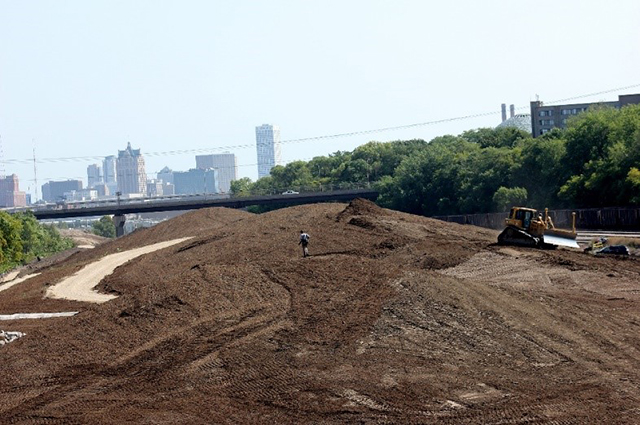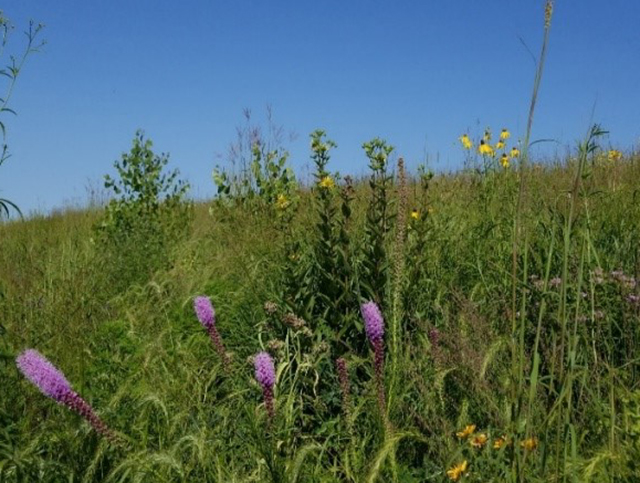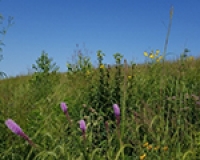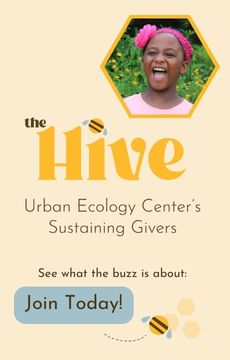This amazing work happened with the help of many partnerships: Menomonee Valley Partners, Inc. (MVP), Redevelopment Authority of City of Milwaukee (RACM), Wisconsin Department of Transportation (DOT), Wisconsin Department of Natural Resources (DNR), and Urban Ecology Center (UEC) all worked together to make Three Bridges Park the thriving green space it is today. This year (six years after the project started), the landscape contractors that were hired to establish native plant vegetation in the park have completed their job, and Three Bridges Park is on a trajectory to be a thriving natural area in the Menomonee Valley. Here's a snapshot of how Three Bridges Park has transformed over the years:
2012
The construction of Three Bridges Park, formerly known as Airline Yards, started in 2012. The movement of soil, both on-site soil and additional fill, was formed into seven hills spanning the length of the park. Once the earth moving was completed, the site was covered with a two foot cap consisting of 18” of clean fill and 6” of topsoil over all of the hills. This was to prevent exposure to contaminate soil that was present, including asbestos. A heavy dose of native seed was spread over the park. This seed mix, of about 60 species, contained annuals, biennials, perennials, and also cover crop.

Three Bridges Park in 2013
2013
Starting in 2013, Urban Ecology Center started utilizing land stewardship volunteers to assist in non-native invasive plant removal, planting of native plants, and erosion control projects. Also starting in 2013, vegetation monitoring commenced in an effort to identify what plant species were growing in Three Bridges Park. This information was used to inform us how the initial seeding, and later, intended native plant communities, were establishing.
2018
Since 2012, 50,000+ herbaceous plants, trees, and shrubs were planted in Three Bridges Park! Non-native, invasive plants (garlic mustard, common buckthorn, and others) have been removed from nearly 15 acres of land. These huge accomplishments were only possible because of the countless volunteers that came out and got their hands and feet dirty. All of this work came along the great work of the contractors that were also doing invasive species control and stabilizing areas of erosion.

Three Bridges Park in 2018
Over the last six years, we have identified, through vegetation surveys, nearly 100 native plant species within Three Bridges Park! In 2013, 51% of the identified plants were native; in 2018, that number increased to 86%. We also conducted our first prescribed burn in the spring of 2018, with hopes of another one being completed in 2019!
But this story doesn’t stop here! If you are interested in getting your hands dirty with land stewardship staff and volunteers, join us for any of our ROOT (Restore Out Outdoors Together) volunteer activities. Click here for the schedule:





